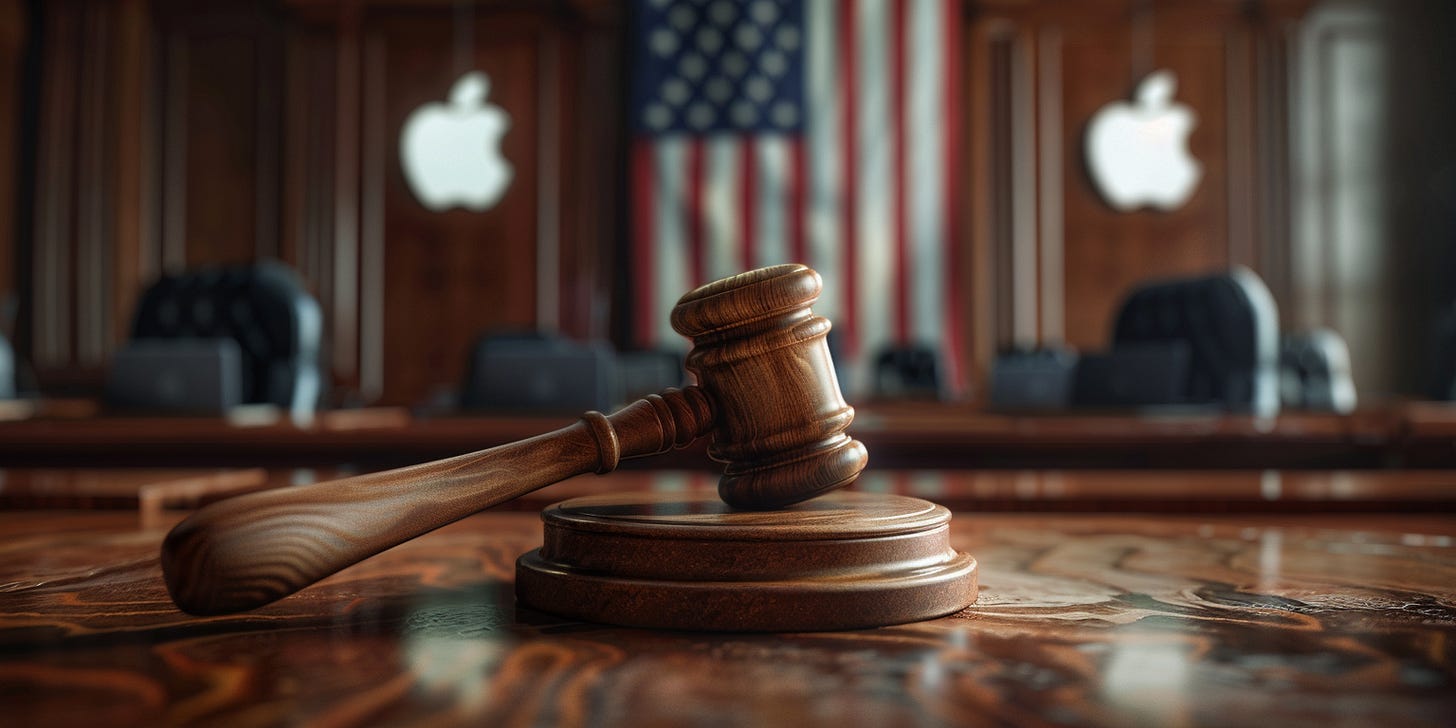As a designer responsible for having invented many design patterns which later became design trends, the recent narrative that Apple is anti-competitive, particularly through actions that allegedly make "other products worse," strikes a personal and professional chord. This narrative overlooks the extensive efforts and innovations that have been dedicated to improving the people’s own experiences with their devices, not just within Apple’s ecosystem but across the entire technology landscape.
Apple has a storied history of championing human rights within the realm of patent innovation, notably within the United States Patent and Trademark Office (USPTO). Over the years, Apple has consistently advocated for the protection of individuals' rights to innovate and create, fostering an environment where groundbreaking ideas can flourish. However, recent allegations by the Department of Justice (DOJ) pose a significant challenge to this ethos. These allegations not only represent a legal battle for Apple but also serve as a critical juncture in defending the voice of reason within the USPTO. By standing firm against these allegations, Apple not only defends its own practices but also safeguards the broader principle of protecting the right to engage in patent innovation, thus ensuring continued progress and advancement for society as a whole.
The idea that Apple is anti-competitive by "making other products worse" is so insulting to anyone who understands how hard it is to improve upon the end-to-end experience for literally the entire world.
We literally improved the overall experience of being a Microsoft Windows user by designing iTunes for Windows iPod owners and now we're supposed to make the messaging experience for Android better for a company that stole our intellectual property for the iPhone simply because they've gained market dominance at our expense?
The Journey of Creating Universal Design Standards
During my time at Apple, I was deeply involved in establishing design patterns that would later become benchmarks for the industry. The creation of these patterns was not just about enhancing Apple's product lineup but about elevating the technology experience for users everywhere. The design philosophy we adhered to aimed to push the boundaries of user interaction, making technology more accessible, efficient, and enjoyable. It’s disheartening to see these contributions reduced to a discussion about anti-competitive behavior.
At Apple, we innovate every day to make technology people love--designing products that work seamlessly together, protect people's privacy and security, and create a magical experience for our users. This lawsuit threatens who we are and the principles that set Apple products apart in fiercely competitive markets. If successful, it would hinder our ability to create the kind of technology people expect from Apple--where hardware, software, and services intersect. It would also set a dangerous precedent, empowering government to take a heavy hand in designing people's technology. We believe this lawsuit is wrong on the facts and the law, and we will vigorously defend against it.
The Irony of "Borrowed" Innovations
The term "borrowed" is a euphemism that barely scratches the surface of how extensively other companies, including Google, have adopted Apple’s innovations. When Apple introduced iTunes for Windows, it was a revolutionary step towards creating a cohesive digital experience for iPod owners, regardless of their preferred operating system. This move improved the overall experience for Microsoft Windows users, bridging a gap in the digital ecosystem. Now, the expectation for Apple to enhance the messaging experience for Android users is ironic and frustrating, given the backdrop of how our design and technological advancements have been utilized by competitors.

The Valorization of Intellectual Property
The conversation around Apple's alleged anti-competitive behavior neglects the fundamental aspect of intellectual property and its valorization. The designs and features we developed at Apple were not just products of creativity but also of rigorous research, testing, and investment. To see these innovations casually replicated or "borrowed" by competitors like Android, which then turn around and challenge Apple’s market position, is a testament to the complex dynamics of innovation and competition in the tech industry.
DOJ to Apple: It doesn't matter if they used YOUR INTELLECTUAL PROPERTY to gain market dominance, your job is to improve upon the product experience and accessibility features of THEIR SHITTY PRODUCTS and adhere to the way their "open standards bodies" define: 'OPEN STANDARDS DEVELOPMENT'.
Undermining Innovation: The Unjust Narrative Against Apple's Patent Legacy
The allegations framing Apple as a bully appear strategically designed to stifle the very company that has arguably done the most to protect patent innovation. This narrative overlooks Apple's significant contributions to technological advancement, where it has consistently set new standards through its patented innovations. By casting Apple in this light, these allegations not only undermine its efforts to humanize technology but also threaten to impede the company’s ability to innovate. This is particularly concerning given Apple's history of defending its patents vigorously, which has often led to broader benefits for the industry by pushing the boundaries of what is possible and setting high standards for product quality and design excellence.
Conclusion
The assertion that Apple is being anti-competitive by “making other products worse” is a misrepresentation and attack on the company’s freedom to continue innovating without being told by one of our competitors what we need to be working on next to improve upon the device experiences people are having with stolen device intelligence. The irony of being pressured to further assist competitors who have benefitted from our work is a stark reminder of how disconnected people truly are from where their quality of life comes from.





